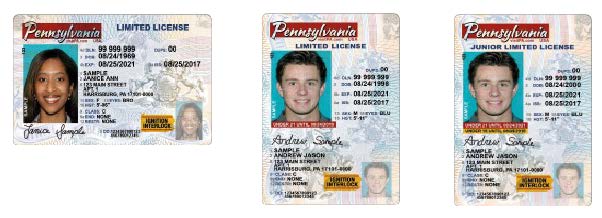
by
Damon Hopkins
|
January 12, 2023
|
Blog
Pennsylvania Ignition Interlock Limited License (I.I.L.L.): Do I have to get one, if so, when can I get it, and how long do I have to keep it?
You’ve received a notice from PennDot that says your license is suspended due to a DUI conviction; or due to an ARD disposition of a DUI; or due to you refusing to submit to a breath or blood test. So, what does all of this actually mean to you?
Length of Suspension
If your suspension is due to a DUI conviction, meaning you plead guilty and received a sentence from the Court, then your license suspension will be for at least 1 year. (Longer if you’ve had prior DUIs)
If your suspension is due to an ARD disposition of your DUI, meaning you’ve been placed in the Accelerated Rehabilitation Disposition (ARD) program, then your license will be suspended for 30 days, 60 days, or 90 days, depending on your BAC and/or age.
If your suspension is due to you refusing to submit to a breathalyzer or blood test of your blood alcohol level (BAC), then your license suspension will be for 1 year, unless you’ve had a prior DUI or prior conviction for refusing a BAC test, then it will be for 18 months.
Do I have to get an I.I.L.L.?
ARD SUSPENSION:
If your license is suspended due to an ARD disposition of your DUI, and you do not have any prior DUIs, then you will not be required to get an I.I.L.L. prior to being re-issued your unrestricted driver’s license. You can simply refrain from driving during the 30, 60, or 90 day suspension, and then apply to have your unrestricted license re-issued to you once the suspension is complete.
However, you may still want one. In this scenario, you could keep driving during the period of your license suspension, once you have an Ignition Interlock installed in your vehicle, and you obtain an I.I.L.L.
DUI CONVICTION & REFUSAL SUSPENSIONS:
If your suspension is due to a DUI conviction OR due to you refusing to submit to a breathalyzer or blood test of your blood alcohol level (BAC), you will be required to get an I.I.L.L. prior to being re-issued your unrestricted driver’s license. You must have an I.I.L.L. for a period of 1 year before PennDot will re-issue your unrestricted driver’s license.
The 1 year of mandatory I.I.L.L. is calculated from the first day you have your I.I.L.L. No duh, right? So why did I mention that? Because in most cases you can get the I.I.L.L. at some point during your license suspension so that you can drive your vehicle with the Ignition Interlock installed. So say you’re suspended for a year, and you get the I.I.L.L. 6 months before your actual suspension is finished. Now, you get to drive for the last 6 months of your suspension instead of walking; And when your suspension is over, you’ll only have 6 more months of the mandatory I.I.L.L. before you can get your unrestricted driver’s license.
On the other hand, if you refrain from driving during the whole 1 year suspension. After your suspension is over you will still have to get an I.I.L.L., and keep it for an entire year before they will re-issue your unrestricted driver’s license.
This sort of makes it a no-brainer that you should obtain your I.I.L.L. as soon as you possibly can.
When can I get an I.I.L.L.?
ARD SUSPENSION:
You are immediately eligible to apply and obtain your I.I.L.L. You should apply for the I.I.L.L. as soon as you get your suspension letter from PennDot. Remember, before they will issue you an I.I.L.L., you have to get the Ignition Interlock device installed in your vehicle.
DUI CONVICTION:
If you have no prior DUI offenses, as defined by 75 PaCSA §3806, then you are immediately eligible to apply and obtain your I.I.L.L. You should apply for the I.I.L.L. as soon as you get your suspension letter from PennDot. Remember, before they will issue you an I.I.L.L., you have to get the Ignition Interlock device installed in your vehicle.
If you do have a prior DUI offense, as defined by 75 PaCSA §3806, then you must serve 6 months of your suspension before you are eligible to apply and obtain your I.I.L.L. You should mark your calendar for 6 months after your suspension date, and apply as soon as those 6 months have passed. Remember, before they will issue you an I.I.L.L., you have to get the Ignition Interlock device installed in your vehicle.
Contrary to what you may think when you read the PennDot suspension letter, they will not notify you when you are first eligible to obtain your I.I.L.L. They will only notify you at the end of your suspension that you are mandated to have an I.I.L.L. before you can get your unrestricted license back.
REFUSAL SUSPENSIONS:
If you have no prior refusal offenses and no prior DUI offenses, as defined by 75 PaCSA §3806, then you must serve 6 months of your suspension before you are eligible to apply and obtain your I.I.L.L. You should mark your calendar for 6 months after your suspension date, and apply as soon as those 6 months have passed. Remember, before they will issue you an I.I.L.L., you have to get the Ignition Interlock device installed in your vehicle.
If you do have a prior refusal offense, or a prior DUI offense, as defined by 75 PaCSA §3806, then you must serve 9 months of your suspension before you are eligible to apply and obtain your I.I.L.L. You should mark your calendar for 9 months after your suspension date, and apply as soon as those 9 months have passed. Remember, before they will issue you an I.I.L.L., you have to get the Ignition Interlock device installed in your vehicle.
Contrary to what you may think when you read the PennDot suspension letter, they will not notify you when you are first eligible to obtain your I.I.L.L. They will only notify you at the end of your suspension that you are mandated to have an I.I.L.L. before you can get your unrestricted license back.

by
Damon Hopkins
|
October 30, 2019
|
Blog
In Pennsylvania, there are three different levels to a DUI charge based upon the number of offenses one has received. DUI offenses are broken down into three different categories for sentencing:
- General impairment
- High rate
- Highest rate
General Impairment
General impairment DUIs involve drivers with a BAC of at least .08%, but less than .10%.
| |
1st Offense
(Ungraded Misdemeanor) |
2nd Offense
(Ungraded Misdemeanor) |
3rd Offense
(Second Degree Misdemeanor) |
4th Offense
(Third Degree Felony) |
| Jail / Probation |
6 months of probation |
5 days to 6 months of jail |
10 days to 2 years jail |
1 to 7 years jail |
| Fines |
$300 |
$300 to $2,500 |
$500 to $5,000 |
$1,500 to $10,000 |
| License Suspension |
None |
12 months |
12 months |
18 months |
High Rate DUIs
High rate DUIs involve drivers with a BAC of at least .10%, but less than .16%. They are also applicable for drivers who are operating a commercial vehicle while inebriated under the age of 21, as well as those who have caused an accident resulting in injury, property damage, or death while inebriated.
| |
1st Offense
(Ungraded Misdemeanor) |
2nd Offense
(Ungraded Misdemeanor) |
3rd Offense
(First Degree Misdemeanor) |
4th Offense
(Third Degree Felony) |
| Jail |
48 hours to 6 months |
30 days to 6 months |
90 days to 5 years |
1 to 7 years |
| Fines |
$500 to $5,000 |
$750 to $5,000 |
$1,500 to $10,000 |
$2,500 to $10,000 |
| License Suspension |
12 months |
12 months |
18 months |
18 months |
Highest Rate DUIs
Highest rate DUIs include offenses where the driver had a BAC of .16% or higher, refused breathalyzer testing in violation of the state’s implied consent law, or had controlled substances in their system.
|
|
1st Offense
(Ungraded Misdemeanor) |
2nd Offense
(First Degree Misdemeanor) |
3rd Offense
(Third Degree Felony) |
4th Offense
(Third Degree Felony) |
| Jail |
72 hours to 6 months |
90 days to 5 years |
1 to 7 years |
1 to 7 years |
| Fines |
$1,000 to $5,000 |
$1,500 to $10,000 |
$2,500 to $10,000 |
$2,500 to $10,000 |
| License Suspension |
12 months |
18 months |
18 months |
18 months |
What Happens to First-Time DUI Offenders in Pennsylvania?
If you are a first-time offender in Pennsylvania, your DUI will most likely be a misdemeanor and will not affect your life the way a felony offense would. If you’re pulled over on drunk driving suspicion, you’ll most likely have to submit to a field sobriety test. This test will be a major factor in determining whether or not you’ll be arrested. If probable cause is established by the officer that pulls you over, you will be taken into custody, processed, and asked to do an official BAC (blood alcohol content) test. Pennsylvania is an implied consent state, meaning that if you are arrested for driving under the influence, you are required to do a blood, breath, or urine test. Refusing such tests will result in a license suspension.
Why Do I Need A DUI Lawyer?
Following the initial arrest, you will be sent a court summons that will explain when and where to appear for your preliminary hearing. This is when you should seek the help of a DUI lawyer. A DUI lawyer can look at the evidence that is available and give you advice on whether or not it is likely your case will go to trial, as well as how you should plead.
It is rather difficult for someone with no experience or training to know what to do in a legal situation. A lack of trail skills and legal knowledge can bring you a large disadvantage in court. This is why hiring a DUI attorney to help navigate your case is in your best interest. Hiring DUI/DWI defense attorney Hopkins will ensure that you can go into the courtroom with confidence regarding your trial.
A DUI lawyer can also lead you in the direction of potentially getting your DUI expunged. For most first-time offenders, the Accelerated Rehabilitative Disposition (ARD) is a way in which defendants can earn a dismissal of their DUI charge. A first time DUI offender may petition the District Attorney’s Office for admittance into the ARD Program. Within the program, the offender is first placed under supervision before undergoing drug and alcohol evaluation, serving a period of probation, and likely receiving a license suspension for a period of time. Upon the completion of the probation period, the case is dismissed and your criminal record is expunged. Although not every defendant is eligible for the ARD Program, it provides a way for offenders to resolve their drunk driving charges.

by
Damon Hopkins
|
August 22, 2019
|
Blog
An auto accident can be a terrifying experience, even if it is only a minor fender-bender. Unfortunately, insurance issues, impaired drivers, and corporate vehicles can cause a small wreck to become a major hassle. When car accidents involve one of these serious issues or long-term injuries, a car accident attorney may be required to get the most desirable outcome for the plaintiff. If you feel like another driver or party has wronged you in some way after being involved in a wreck, look to attorney Damon Hopkins, a car accident and personal injury lawyer.
Attorney Hopkins is specially trained to help you recover monetary losses due to auto accidents. With over 20 years of experience, he works hard to get his clients reimbursed for any medical expenses that may be incurred. Learn more about Damon Hopkins Law, and how he should be your next Accident Attorney in Erie, PA.
When Is A Car Accident Attorney in Erie, PA Needed?
Handling personal injury claims and accident claims on your own is challenging. If you were injured in a serious car accident and are paying for medical bills, car repairs, etc., hiring a lawyer will make everything easier, and ensure a respected settlement. There are many reasons why you may want to consult with an Erie, PA personal injury attorney.
Another Party’s Denying Liability
In a few cases, the cause of the accident is unclear, and an insurance company will not accept liability. If the insurance provider denies liability for the claim, you must provide clear and convincing evidence that the other party is responsible for causing the accident. Damon Hopkins, Erie’s accident attorney, understands all the legal elements under Pennsylvania’s personal injury laws and will help fight insurance claims for clients.
Unable to Meet Deadlines to File Personal Injury Claim
Claims related to personal injuries and wrongful deaths must be filed within a specific period after the accident has taken place. If you do not file within a certain time frame, what typically happens is the loss of rights to recover compensation from the responsible party. Knowing that Pennsylvania’s Statute of Limitations sets the deadline for filing personal injury claims, there are however several exceptions to modify the time for filing a claim:
- If a government entity or government employee is involved
- In the case of a minor being involved
- Someone with disabilities is involved
Because factors are taken into consideration for personal injury lawsuit deadlines, it is best to contact an Erie personal injury lawyer after an accident or injury.
Injuries Are Serious
Some car accidents result in severe injuries, and even death. The losses and damages caused by these severe injuries can consequently increase in medical bills, loss of a stable income, and other traumatic life changes. Along with these life changes, insurance companies are searching for any reason to deny your claim. Accident attorney Hopkins protects you from unfair insurance tactics used when you are most vulnerable.
Accidents are Overwhelming & You’re Not Sure Where to Start
After an accident happens, oftentimes it’s just the beginning. From driving along the road safely to now dealing with the doctor’s visits, medical bills, property damage claims, and more, things start to become overwhelming. Allowing Damon Hopkins, an accident attorney in Erie, PA to handle your claim, allows you to focus on getting better while he protects your rights and deals with all legal matters that are required to file an accident claim.
Take the Weight Off Your Shoulders & Call a Car Accident Lawyer in Erie, PA
An automobile accident brings on a lot of questions:
- Who is at fault?
- Who pays for damage to my car?
- Who will pay for my medical bills?
- How much should I get for pain and suffering?
- Can I ask the insurance company to reimburse me for lost wages?
Perhaps the most important way an attorney can help you with your car accident case is by being your advocate. This may be your first time dealing with an accident claim. There is a lot of work that goes into negotiating an insurance settlement. An accident attorney, like Damon Hopkins, can do it all for you.
Negotiating with automobile insurance companies can be a daunting task if you choose to act alone. If you have been seriously injured and are trying to recover, finding an experienced attorney to obtain the necessary evidence to support your claim is crucial. Alongside that, having an experienced and articulate advocate working for you is essential in obtaining a fair resolution in your car accident case. Erie, PA personal injury attorney Hopkins will be your advocate before the judge, jury, and other attorneys, making sure you are compensated.
Accident Attorney Hopkins’s Knowledge of Personal Injury Law
Damon Hopkins is extremely knowledgeable about personal injury law and the procedural rules that may affect any case. As a car accident lawyer, attorney Hopkins can help with a client’s statutes of limitations when filing a lawsuit against the at-fault driver. Having an attorney who is knowledgeable about the law, like Damon Hopkins, evens the playing field, especially when you are going up against the experience and vast resources of a large insurance company. Don’t settle without talking to accident attorney Damon Hopkins.

by
Damon Hopkins
|
June 20, 2019
|
Blog
When two people get married, a number of legal relationships, property rights, and tax advantages are created between them automatically. When two people live together outside of marriage, none of this happens automatically, and they must create their own legal relationships and protections. For estate planning purposes, couples who are not planning to get married have to be careful to ensure that they have a valid Pennsylvania Will in place providing each other all assets that they would like their partners to receive should one pass away unexpectedly. This way, their estate will be distributed based on their Will and not via the PA intestacy laws. Unmarried couples need the assistance of a Pennsylvania Estate Planning Attorney.
What are the Requirements to Obtain a Will in Northwestern PA?
In order to obtain a Will in northwestern, PA, the testator of a Will must be at least eighteen years old and of “sound mind,” in other words, be aware of what they are doing when making the Will. A Will in Pennsylvania must be signed at its end. In some cases, another person can sign for the Testator in his/her presence but it must be in writing to be validated. In Pennsylvania, it is not a requirement that a Will be witnessed, however, some county’s require two witnesses at the time of probate, or when the Will is being administered after the testator’s death. Damon C. Hopkins, estate planning attorney, will draft a Will according to your specifications, ensuring that your final Will reflects all of your personal wishes as to the distribution of your estate. He can also draft other important legal documents on clients’ behalf, such as a Pennsylvania Power of Attorney, a Living Will, etc.
List of Forums Unmarried Couples Need to Plan for in PA
At Damon Hopkins Law, based in Erie, PA, we provide estate planning services to unmarried couples in Pennsylvania. We advise clients on issues such as the following:
- Writing Wills, Living Wills, Powers of Attorney, Trusts & Medical Directives
- Designate Beneficiaries for Bank and Other Accounts | Own Assets Together
- Domestic partnership agreements
- Estate and inheritance tax planning
Writing Wills/Living Wills, Powers of Attorney, Trusts & Medical Directives
Creating Wills is crucial in regards to keeping all assets in the family. If one dies without a Will in Pennsylvania and he/she is not married, their assets will pass to blood relatives, not their partner. If children are involved, this is another huge reason for writing a Will. If just one partner is a legal parent and dies, the other partner would have been named as the guardian on the Will in order to grant the partner guardianship. Often times, people write a letter alongside the Will to explain to the court why it’s important for the partner to be the children’s guardian. However, if there’s another legal parent in the picture, that person would probably take over raising the children. This is why Wills are essential for unmarried couples, and making sure everything is filed correctly, too. You can also leave assets to each other with a living trust; the trust performs the same function as a Will but lets the surviving partner avoid the hassle and expense of probate. It is often advisable for unmarried couples to use trusts to achieve their estate planning goals because trusts are less susceptible to legal challenges by other parties. Contact estate attorney Hopkins to get a detailed Will drafted the way you want it, correctly the first time.
Using Powers of Attorney for finances gives unmarried couples authority over one another’s assets. Any power of attorney that a partner gives the other should be carefully worded to achieve all of your goals while avoiding potential legal disputes. This can be a big benefit if either partner is ever unexpectedly struck by illness or injury. Needing quick access to a partner’s checking account to pay the mortgage, for example, is something that can be done with a POA. Without a POA for finances, partners would have to go to court and prove that they should have control over his/her assets. Making Powers of Attorney for health care situations gives each other the authority to make medical decisions if one partner is ever unable to make them on their own. Along with the POA, knowledgeable estate attorneys, like Damon C. Hopkins recommends people to make medical directives. With a medical directive, partners can make any decisions about medical care in the event of a partner’s incapacity.
Designate Beneficiaries for Accounts | Conjoin Assets
Unmarried couples need to pay careful attention to the beneficiary designations on their life insurance policies and employee benefit plans. Another way to make sure that neither partner is left out in the cold after the other dies are to own big-ticket items, such as houses and cars, together in joint tenancy with right of survivorship. However, partners may not want to share ownership of all assets for lots of different reasons. Another thing to keep in mind is retirement accounts can’t be shared either. Sharing each other’s assets allows the partner of the deceased to automatically own 100% of the property. To do this, both names on the asset’s official title document; for example, a car’s certificate of title or a deed to real property. It’s easy and it doesn’t cost anything. Changes can be made by filling out and sending in another form. Learn more about beneficiary designations for different kinds of assets by calling Attorney Hopkins and setting up a consultation today!
Contracting Domestic Partnership Agreements | Prenuptial Agreements
Comparable to a prenuptial agreement, a domestic partnership agreement can be used to formalize the terms of a relationship. A Domestic Partnership Agreement is especially important for same-sex couples and unmarried couples. Opposite-sex couples planning to enter into marriage have long had the opportunity to create a Prenuptial Agreement, whereas unmarried couples don’t have to consider that option right away. A Prenuptial Agreement usually is for preserving the nature of property in the event that the marriage ends, and importantly, provide protection for dependents such as children. In every practical sense, a Domestic Partnership Agreement works much like a Prenuptial Agreement does for married couples who are planning to marry. Such an agreement can serve to clarify the financial terms of the relationship and the disposition of areas of concern, such as joint property ownership and shared responsibilities. With this in mind, those planning to enter into a registered domestic partnership should consider creating a Domestic Partnership Agreement.
Estate & Inheritance Tax Planning
Unmarried couples often need to take special tax planning measures because they do not have access to tax benefits for married couples. The differentiator between an estate tax and an inheritance tax is who pays it. While the terms “estate tax” and “inheritance tax” are often used interchangeably when referring to taxes collected when someone dies, these two terms refer to two completely different types of death taxes. An inheritance tax is calculated based on who receives a deceased person’s property. Beneficiaries are liable for paying this tax, although a Will sometimes provides that the estate should pick up this tab as well. Transfers to surviving spouses are completely exempt from the inheritance tax in all six states that collect it, but property passing to children and grandchildren is subject to the state inheritance tax in Nebraska and Pennsylvania. More collateral heirs, such as brothers, sisters, nieces, and nephews, or friends, must typically pay this tax.
Damon C. Hopkins can Help with all Estate Planning & Administration Services in Erie, PA
It’s never too early to begin planning for the future for unmarried couples. Damon Hopkins Law is a well-trusted estate and trust attorney that provides estate planning and drafting services for all sizes, types, and complexities of estates. Attorney Hopkins carefully considers all clients’ goals and family situations. Attorney Hopkins works closely with accountants, brokers, bankers, and other financial service providers to develop comprehensive estate plans that accomplish our clients’ objectives. By trusting Attorney Hopkins for guidance through the Living Will or power of attorney process, you will feel confident in the decisions you’re making and receive the assurance that these important documents are completed properly. Call for a free consultation today!

by
Damon Hopkins
|
April 22, 2019
|
Blog
Potential clients–especially the younger, more tech-savvy generation–often ask why they should see an attorney about wills when forms are readily available at the click of a button. Simply put, a will is not something that you should tackle on your own. Damon Hopkins, a qualified estate and probate planning attorney, assesses your current situation and can devote more attention to making wills and developing comprehensive estate plans. Life is complicated, and family dynamics often come into play when drafting an estate plan. A form has no way of counseling you on any emotionally-charged issues, or can it provide much-needed advice during these sometimes precarious proceedings.
Advantages & Disadvantages of Creating a Will Online
According to the AARP article, Haven’t Done a Will Yet?, “only 4 in 10 American adults have a will or living trust.” If you decide to do your estate planning online and by yourself, the advantage is that you will have a plan as quickly and cheaply as possible. For some, that may be better than having no plan at all–especially in regards to getting a will, power of attorney, and advance health care directive. The reality is, many people have no idea what they want or need when it comes to estate planning. Once you get into the complexities of family dynamics, specific laws regarding your home state, and any other unique factors for your particular situation; online estate planning can cause many more challenges compared to working with a team of dedicated professionals. While many of us would prefer to fill in the blanks at their own convenience, some of these online documents can lay estate planning traps, rather than helping you save time and money. Call estate law attorney, Damon C. Hopkins to get professional advice and a free consultation regarding the creation of a will.
What are Other Required Documents for Estate Planning?
Many people believe that having an estate plan means drafting a will or a trust. However, there is much more to include in your estate planning to make sure all of your assets are transferred seamlessly to your heirs upon end-of-life. A successful estate plan also includes provisions allowing family members to access or control assets should the grantor become unable to do so. Here is a list of items every estate plan should include:
- Will/trust
- A durable power of attorney
- Beneficiary designations
- Letter of intent
- Healthcare power of attorney
- Guardianship designations
Individuals put off estate planning because they think they don’t own enough, they’re not old enough, are too busy, or are confused and don’t know who can help them. But estate planning could be the most important exercise ever performed during one’s lifetime to give peace of mind and ensures the next generation receives the fair amount owed to them.
Damon C. Hopkins – Your Erie, PA Estate Administration Lawyer
The best way to avoid mistakes when making wills is to consult with an experienced estate planning attorney like Damon C. Hopkins with offices in Erie, PA. It could save your family from unnecessary stress, and ensures they receive both your probate and non-probate assets as intended. Damon C. Hopkins provides over 22 years of experience to people in need of legal assistance in settling the estate of a loved one. Attorney Hopkins personally handles every estate, taking the time to learn the specific details of your case, looking out for all potential problems, and assuring the timely settlement of the estate. If you are in Erie County, including Edinboro, North East, Corry, Girard, and other surrounding townships, call Damon C. Hopkins today.

by
Damon Hopkins
|
April 3, 2019
|
Blog
In 2003, the Pennsylvania legislature overhauled its drunk driving laws. The crime of driving under the influence (DUI) is now technically called DAI, or “driving after imbibing” (DAI). This new legislation also lowered the blood alcohol concentration (BAC) levels to .08% in order to include drivers who consider themselves sober or “buzzed,” and not necessarily what they would assume as being “drunk.” Pennsylvania has a zero-tolerance policy for drivers operating a motor vehicle while under the influence of any mind-altering substance; including alcohol, illegal drugs (yes, even medical marijuana) and prescription or over-the-counter drugs. Regardless of what it is called, drunk driving in Pennsylvania is a serious criminal offense with severe penalties that include the loss of ones’ driver’s license, Erie county fines, and even jail time. That is why it is critical to act quickly following a DAI /DUI arrest in Erie, PA.
DAI / DUI defense Attorney, Damon C. Hopkins has successfully defended countless clients against drunk driving charges throughout Pennsylvania and, in many cases, have cleared the charges entirely. Damon C. Hopkins is prepared to help minimize the damages of a DAI / DUI arrest. Contact Attorney Hopkins anytime to discuss your Pennsylvania DUI / DAI case or to schedule a free consultation in Erie, PA.
Explaining the Consequences of Receiving a DAI / DUI in Pennsylvania
When it comes to DAI / DUI in Pennsylvania, the penalties are severe. Pennsylvania is one of just a few states that has a “per se” law related to driving under the influence of illegal drugs (DUI Drugs). Meaning, that if a Pennsylvania DUI / DAI arrestee has any illegal drugs in their system, they will be punished as if they were at the highest alcohol levels. A first-time DUI / DAI for illegal drugs requires a mandatory minimum of 72-hour incarceration in jail, that could be as long as six months depending on other factors. The fines for a first-time DUI / DAI offense can also be as high as $5,000, along with a 12-month driver’s license suspension.
Drunk driving defense attorney Damon Hopkins might be able to challenge your DUI / DAI charges if the arresting officer did not a proper basis to stop the vehicle. Keep in mind that if the arrestee was not observed committing a crime or traffic violation before being pulled over, the police may not have had the right to stop or question that person. As an experienced DUI attorney in Erie, PA, Damon C. Hopkins can assess whether the police had the right to pull you over in the first place.
3 Common Tests Used in Pennsylvania DUI / DAI Cases:
- Portable Breath Test: Commonly called a “portable breathalyzer”, or “PBT”. Based on the results of this test, the police officer may arrest a driver for drunk driving.
- Field Sobriety Test: If a driver appears intoxicated, the police may ask them to perform a series of field sobriety tests. If they fail the tests, the police officer may arrest the driver.
- Blood Test: After DAI or DUI arrest in Pennsylvania, the arrestee may be taken to a hospital where blood is drawn to more accurately determine their BAC level.
- Breathalyzer: After DAI or DUI arrest in Pennsylvania, the arrestee may be taken to a location where they are given a full-sized breath test to more accurately determine their BAC level.
DAI Defense Attorney Hopkins, DUI Attorney in Erie Pa, looks for any errors that could’ve been made:
- Police improperly detained the driver or made an error of law during the stop.
- Police failed to follow proper policies and procedures during DUI tests.
- The breathalyzer was improperly calibrated, causing a false reading.
- The results of the blood test were inaccurate or improperly obtained.
Charged With Drunk Driving or DAI In PA? Contact Damon Hopkins – Erie’s DUI / DAI Defense Lawyer
Attorney Damon C. Hopkins is a former prosecutor, providing a unique insight into the process of criminal defense across Erie County. He can view your case from all angles and plan the best possible line of defense. With more than 23 years of trial experience, both as a prosecutor and a defense lawyer, he is prepared to assist you in any criminal case, helping to protect people’s civil rights.
If you have been charged with DAI / DUI in Northeastern Pennsylvania, don’t assume that you have to plead guilty. Contact Damon Hopkins, an experienced DUI defense lawyer, today for a consultation before making any further moves. He will fight to defend you against the DAI charges and help to avoid more severe penalties for drunk driving in Erie, North East, Harborcreek, Corry, and across Northeastern PA. Please fill out our contact form for a free initial consultation about drunk driving charges.









